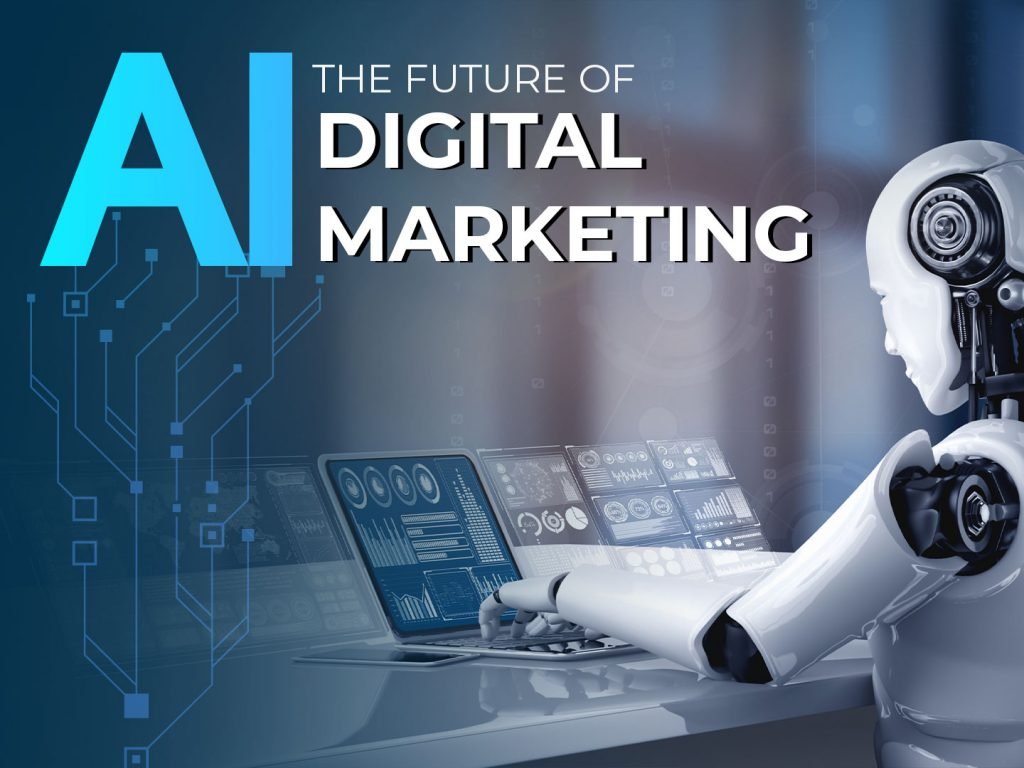Pros and Cons of AI in Digital Marketing

In the rapidly evolving landscape of digital marketing, Artificial Intelligence (AI) has emerged as a game-changer, offering unparalleled capabilities to streamline processes, enhance targeting, and boost ROI. However, like any powerful tool, AI comes with its own set of advantages and challenges. Let’s explore the pros and cons of utilizing AI in digital marketing.
Pros:
- Data-Driven Insights: AI empowers digital marketers with deep insights derived from vast volumes of data. By analyzing consumer behavior patterns and preferences, marketers can make informed decisions to optimize campaigns for maximum impact.
- Hyper-Personalization: AI algorithms enable personalized marketing at scale by tailoring content and offers to individual preferences and characteristics. This level of customization fosters stronger customer relationships and drives engagement and loyalty.
- Automation: AI-powered automation tools streamline repetitive tasks such as email marketing, content scheduling, and ad optimization. This frees up marketers’ time to focus on strategy and creative endeavors, leading to increased efficiency and productivity.
- Predictive Analytics: AI’s predictive capabilities allow marketers to anticipate trends and consumer behavior, enabling proactive campaign optimization and strategic decision-making. By staying ahead of the curve, companies can maintain a competitive edge in the dynamic digital landscape.
- Dynamic Content Optimization: AI-driven content optimization ensures that marketing messages resonate with the target audience in real-time. By analysing user interactions and feedback, AI algorithms optimize content for maximum engagement and conversion.
Cons:
- Cost of Implementation: Implementing AI technologies can be a significant investment, especially for smaller digital marketing firms with limited budgets. From software licenses to training and infrastructure upgrades, the upfront costs can be prohibitive for some companies.
- Data Privacy Concerns: AI relies heavily on data, raising concerns about privacy and security. Marketers must navigate regulations such as GDPR and CCPA to ensure compliance and protect consumer data, which adds complexity and potential risk.
- Risk of Bias: AI algorithms may perpetuate bias inherent in the data they are trained on, leading to unfair or discriminatory outcomes. Marketers must proactively address bias to ensure equitable treatment and avoid reputational damage.
- Over-Reliance on Technology: Excessive reliance on AI tools can stifle human creativity and intuition in marketing strategies. It’s crucial for marketers to strike a balance between data-driven insights and human expertise to maintain authenticity and innovation.
- Complexity and Learning Curve: AI technologies can be complex, requiring specialized knowledge and skills to implement and manage effectively. Digital marketing teams may face challenges in adapting to new tools and workflows, necessitating ongoing training and support.
In summary, AI offers digital marketing companies unprecedented opportunities for innovation, efficiency, and effectiveness. However, it’s essential to approach AI implementation with a clear understanding of both its benefits and limitations. By leveraging AI responsibly and integrating it strategically into their operations, marketers can unlock new avenues for growth and success in the competitive digital landscape.
Read more such articles, here
